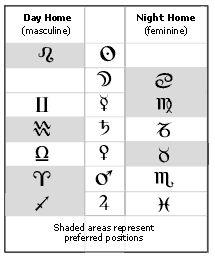JUPITERASC
Well-known member
- Joined
- Jan 16, 2008
- Messages
- 108,238
***Please Read Before Posting On This Board***
This is the Traditional Astrology forum. Out of all the different boards in this forum, this one is the home for traditional astrologers. It was created so that traditional astrologers can discuss traditional astrology with each other, without having to justify it to non-traditionalists or be...
www.astrologyweekly.com
An important consideration in Hellenistic Astrology
is whether a planet is: “..able to conduct its business..”
or
not able to conduct its business
When a planet is in the interval of first station to second station
i.e. retrograde,
then
a planet is not fit to conduct its business
because
it is described as “...walking backwards...”
ROBERT SCHMIDT - PROJECT HINDSIGHT http://www.projecthindsight.com/
meanwhile:
some brief USEFUL INFO ON some CONDITIONS RELATIVE TO THE SUN
When a planet is in the interval
from heliacal rising up to first station
or
from second station up to the heliacal setting
the planet is capable of appearing
and therefore
is in a place conducive to the conduct of its business.
HELIACAL
The heliacal rising of a star
or other body
such as the moon, a planet or a constellation
occurs
when it first becomes visible above the eastern horizon
for a brief moment just before sunrise
after a period of time when it had not been visible
When a planet is making a Station and/or phasis,
it is not only capable of appearing but is also intensified
Robert Schmidt - able to read & translate Ancient Greek at a scholarly level
says that:
Phasis means “..making an appearance..”
or
“..sudden dramatic showing of something..”
It can also mean:
“..something that speaks..”
or we can say that it means:
“..an appearance that speaks..”
PHASIS describes a planet making a heliacal rising
aka rising before the sun - standardized to 15 degrees by Hellenistic astrology
within 7 days before of after native’s birth.
Rumen Kolev one of the few living practitioners of Ancient Babylonian Astrology
based on personal observations of the skies,
states that:
the 15 degrees standardisation
is obviously a variable
dependent upon local conditions
When any planet is “..under the sun’s beams..”
i.e. within 15 ecliptic degrees of the sun,
the planet is considered not capable of conducting its business
due to being “..drained or unempowered..”
However, there are modifications to this
such as:
if a planet is in its Exaltation, own terms or own bounds or dignity
THEN
a planet is considered to be:
“..in its own chariot..”
and therefore
“..protected and/or shielded..”
from the potential '..harm..' of combustion.
Traditional astrology considers the TOTALITY OF TESTIMONIES
&
considers also


